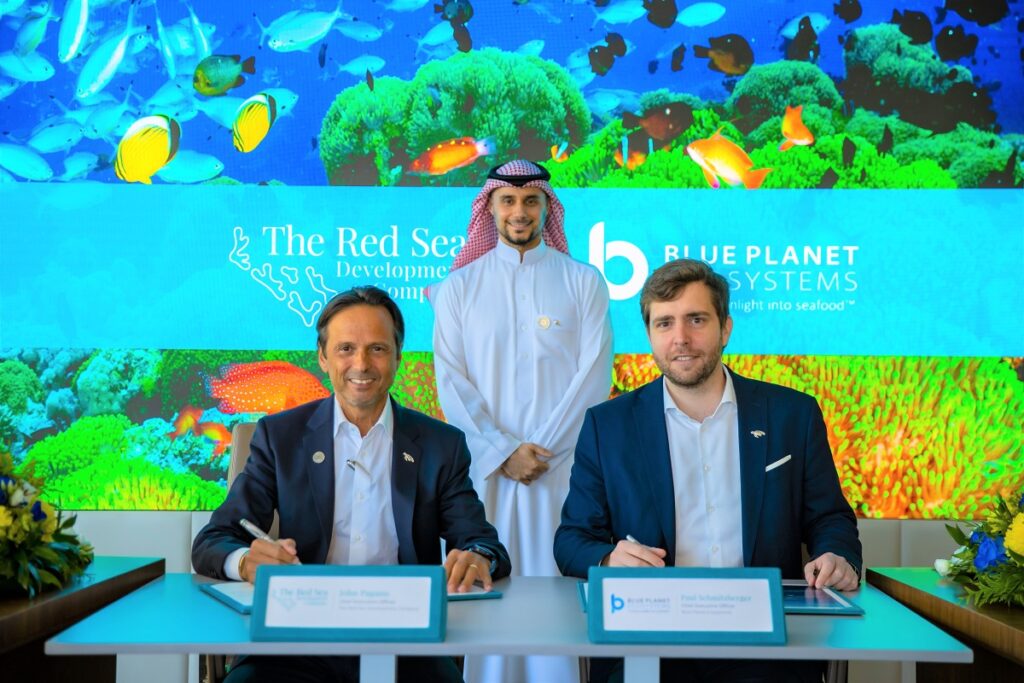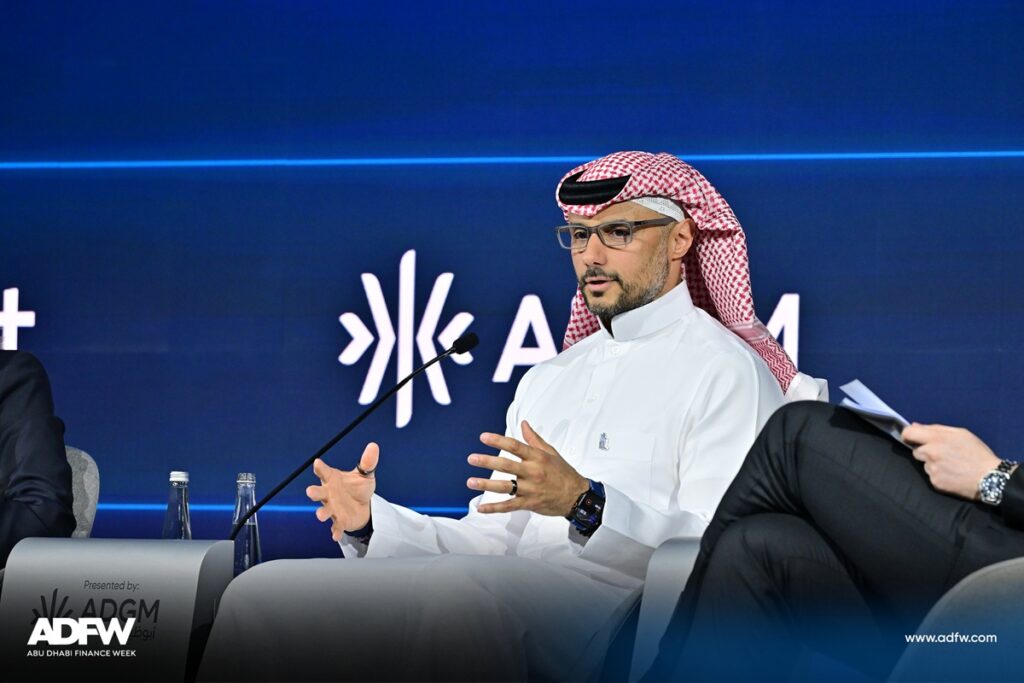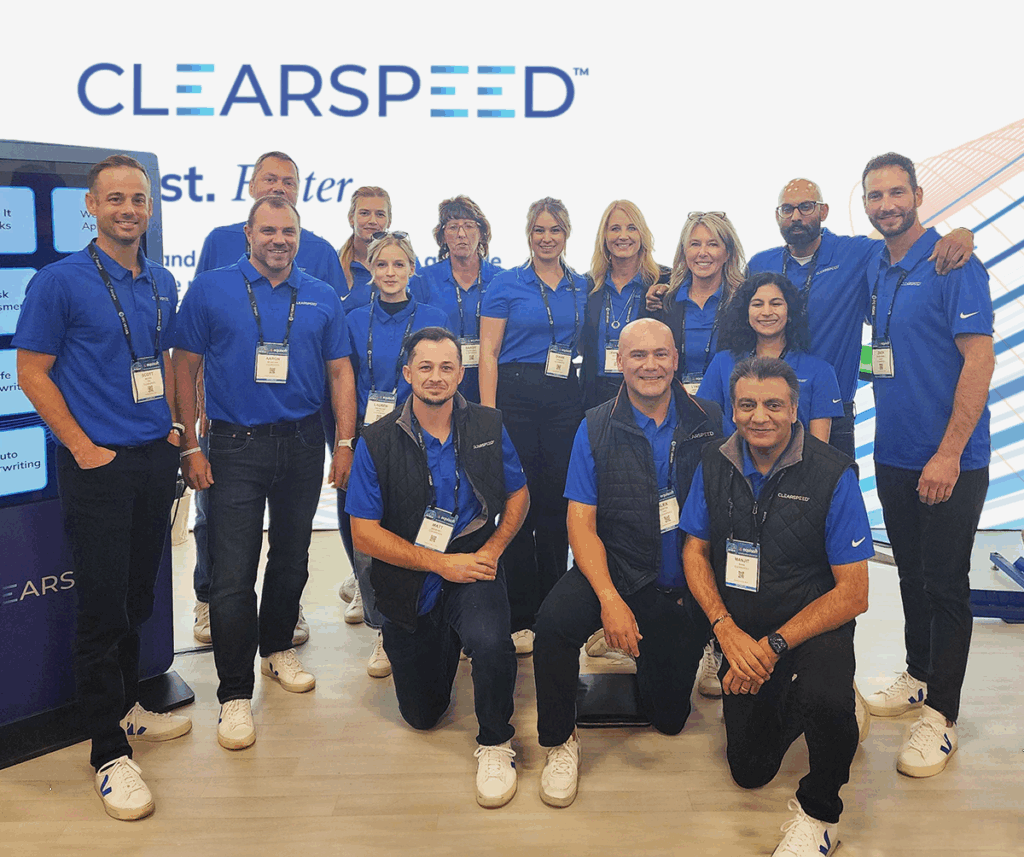The Red Sea Development Company (TRSDC), the developer behind the world’s most ambitious regenerative tourism project, has signed two Memorandum of Understandings (MoU) with Blue Planet Ecosystems (BPE).
Signed by John Pagano, CEO of TRSDC and Paul Schmitzburger, CEO of BPE, the first MoU sees the entities pledging to investigate the implementation of a viable solution for Sustainable High Tech, CO2 Negative Fish Production. The Blue Planet Ecosystems’ solution proposed will provide sustainable production of seafood and algae production in a desert environment.
HRH Prince Khaled bin Alwaleed bin Talal Al Saud attended the signing representing KBW Ventures as an early investor in Blue Planet Ecosystems. “It is especially exciting for me to witness a KBW Ventures portfolio company see this type of success in my home country. The signing between Blue Plant Ecosystems and TRSDC is pivotal in that it demonstrates Saudi’s willingness to lead in the sustainable protein field, considering the world’s most advanced technologies as suitable for its pledge toward food security and responsibly addressing the climate crisis,” said Prince Khaled, applauding the BPE team.
“In response to growing consumer demand for sustainable protein during their travel experiences and to support our regenerative ambitions, TRSDC strives to explore innovative technology solutions. Our partnership with Blue Planet Ecosystems, means working together to set a new global standard in sustainable, multitrophic desert aquaculture where we can literally turn sunlight into seafood,” said John Pagano, CEO of TRSDC.

The Land-based Automated Recirculating Aquaculture (LARA) system works by replicating natural aquatic ecosystems in a modular and automated system. LARA converts CO2 directly into chemical-free seafood using phyto and zooplankton as transitional stages. It is constructed of a tower of three horizontal units. The top unit uses the sun’s energy to grow microalgae which powers the entire system. The microalgae is then moved to the next unit down, where it nourishes zooplankton. The zooplankton is then transported to the bottom unit, where it’s eaten by fish.
“The (LARA) system has a minimal environmental footprint and will aid in carbon sequestration for our flagship destination as well as future projects on the Red Sea coast in alignment with the company’s aspiration to achieve 100 percent carbon neutrality,” added Pagano.
The first phase of project will be implemented as a 3.500m2 pilot, to assess whether conditions at The Red Sea Project are suitable for the solution to work effectively and efficiently. This will be the first LARA pilot in the Middle East to undergo a commercial trial.
Paul Schmitzberger, the CEO of Blue Planet Ecosystems, said: “It is fascinating to see what can be achieved when innovation meets a clear vision for a sustainable future. The Red Sea Project is demonstrating how the destination of the future will look and operate.”
“At the Red Sea Project site, the conditions are perfect to pilot and establish our desert farming technology – to demonstrate our joint vision of turning sunlight into seafood. We are looking forward to this amazing development journey and feel proud to be making our contribution to a global movement,” added Schmitzberger.
The second MoU signed was to acknowledge TRSDC and BPE’s intention to jointly participate in the XPRIZE Carbon Removal competition funded by Elon Musk’s Musk Foundation. The competition, which has prize money of $100M, is aimed at tackling the biggest problem facing humanity – climate change and rebalancing the Earth’s carbon cycle. As this aligns with TRSDC’s and BPE’s goals, the two parties will enter the competition as one team.
The partnership with BPE follows another innovative technology solution employed by TRSDC when it collaborated with SOURCE Global to become the first destination in the world to serve the world’s first truly renewable bottled water.
Activity for the first phase of The Red Sea Project is well underway and is on track to be completed in 2023, preceded by the opening of our first hotels at the end of next year.
The project has surpassed significant milestones, with over 600 contracts signed to date, worth over SAR 17bn ($4.5bn).
Upon completion in 2030, The Red Sea Project will comprise 50 resorts, offering up to 8,000 hotel rooms and more than 1,000 residential properties across 22 islands and six inland sites. The destination will also include an international airport, luxury marinas, golf courses, entertainment, and leisure facilities.
See the full release by TRSDC: https://www.theredsea.sa/en/media-center/news/trsdc-to-partner-with-blue-planet-ecosystems-for-sustainable-fish-pilot-scheme#



